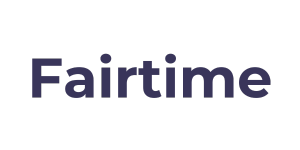The Hospitality Industry Award creates a set of criteria under which a business must abide when employing staff in this industry. Employers need to know what terms of the Hospitality Award mean and the obligations they create. Modern Awards are designed to protect the rights of hospitality workers and ensure minimum pay rates are met in every instance. The Fair Work Ombudsman has increased enforcement action for payroll non-compliance in recent years and this means that hospitality businesses face serious penalties for underpayment of staff.
Why is wage theft a concern for Hospitality Award employers?
Increasingly, hospitality businesses have been featured in a number of Fair Work cases relating to payment scandals and wage theft under the Hospitality Industry Award, with three key trends apparent.
First, we see cases brought by the Fair Work Ombudsman are not always due to an underlying systemic underpayment issue in a business, but are increasingly being brought for one-off offences. Second, the majority of these cases involve Hospitality employers paying below the Hospitality Award pay rate regarding employee minimum wages and penalty rates for weekend, public holidays and evening work. Third, most hospitality businesses who do end up before the Court amidst allegations of underpayment, are usually there because they have then failed to comply with the directions of the Fair Work Ombudsman to fix these issues.
Most commonly, the result of an employer ignoring a Compliance Notice is that the Court will order the business to pay back any underpayment of wages and entitlements in full. However, employers should be aware that any failure to respond to a Compliance Notice, is taken seriously by the Ombudsman and will result in the Ombudsman seeking additional financial penalties against businesses and indviduals.
Why is the Fair Work Ombudsman investigating Hospitality Award businesses?
According to the Fair Work Ombudsman, underpayment in the Hospitality industry occurs more than in any other industry. In 2020-2021 a report was prepared that recorded employee underpayment uncovered as a result of an anonymous tip off.
This report tracked offending employers on a per industry basis, and Hospitality came in first with 36%. This places the Hospitality industry at a rate twice that of the second highest industry to receive anonymous reports. That industry was Retail, which saw a percentage of 14% over the same period.
As a result, the Ombudsman notes that given this high percentage in the Hospitality industry, that not only did it account for the highest number of disputes received, it also accounted for 36% of all payroll compliance litigation in 2020-2021. In addition, a recent report by the Fair Work Ombudsman into cafes and restaurants during the period between July 2018 – December 2021, reveals that 13% of all disputes in this industry involves underpayment of wages, with a further 13% related to non-payment of wages.
A Key Priority for the Fair Work Ombudsman
Given that breaches in the Hospitality industry are considerably higher than that of any other industry, the Ombudsman has identified this industry as one of their key enforcement priorities. The industry is also under the watch of the Ombudsman, primarily, because it employs a high number of young and migrant workers who are particularly vulnerable to exploitation and wage theft. Therefore, as part of their campaign to improve compliance, the Ombudsman is seeking to increase its engagement presence in this industry through education and enforcement activities.
The Ombudsman is also taking more proactive steps to enforce payroll compliance, by undertaking audits of popular food precinct areas. With a recent audit of 67 hospitality businesses in Glebe, New South Wales, finding that two-thirds of those businesses had breached workplace laws regarding underpayment of wages.
As a result, the Ombudsman recovered a total of $188,125 in underpaid wages for 176 employees and many businesses found in breach of workplace laws, were issued with compliance notices, formal cautions and infringement notices. Further audits have also been carried out in Melbourne and Brisbane across December 2018-March 2020, with underpayments to the value of $500,000 being uncovered to date.
What happens if I have underpaid my employees?
Underpayment of wages occurs across all industries and is a serious breach of workplace laws. As a result, the Ombudsman takes underpayment seriously and now has greater powers to investigate instances of underpayment, than they did in previous years. As can be seen by the Ombudsman’s proactive audits of popular food precinct areas.
This creates serious challenges for Australian businesses who may not be compliant with Modern Award Rules. However, regardless of whether an employee has approached the Ombudsman for pay rate advice, or whether the Ombudsman has undertaken a proactive compliance audit of a particular business or industry, an investigation will always be their first port of call.
Fair Work Investigation for Suspected Underpayment
During this investigation the Ombudsman will collect certain records of a business, such as time and wage records, or employment contracts. This information is collected so that the Ombudsman can determine whether or not the business has failed to meet its payroll obligations.
If a business is found to have breached their obligations, the Ombudsman will assess the seriousness of the breach and will likely issue the business with a Compliance Notice or an Infringement Notice.
Compliance notices will outline what the breach is, how the business is to correct it, the type of evidence required to prove that it has been corrected and the time by which this must be done. In addition, the Compliance Notice will also state what will occur if there is a failure to comply with the notice, such as the Ombudsman pursuing litigation to remedy an underpayment and/or enforce additional financial penalties.
Regarding an Infringement Notice, this is like an on the spot fine issued by the Ombudsman during an investigation. Notices of this kind are usually issued to businesses who fail to comply with their payslip or record keeping obligations. They can be issued for each breach that has occurred and may even be issued for first time breaches.
Why is underpayment of staff a problem for the Hospitality Industry Award?
Three recent cases involving Hospitality businesses breaching Modern Award compliance laws indicates that underpayment is a systemic issue that is on the Fair Work Ombudsman’s radar.
These cases highlight issues of underpayment ranging from small one or two person businesses to large corporate enterprises. For example, in the cases of Four Arms Hotel and Red Lion Brewery, underpayment occurred to a single employee, who then approached the Ombudsman for assistance.
In both of these cases, this single complaint was enough for the Ombudsman to take notice and commence investigations into those companies. In another more serious matter, that followed a proactive audit of a Hobart food precinct area, the Ombudsman identified the Salamanca Wharf Cafe, to have underpaid five of their employees.
The breaches identified in all of these cases relate to those Hospitality businesses underpaying employee minimum wages, failing to pay weekend and public holiday penalty rates and failing to pay outstanding leave entitlements. Whereas in the more serious case of the Salamanca Wharf Cafe, breaches extended further to a failure to adhere to record keeping laws (which require employers to both make and keep their employment records for a period of 7 years).
As a result, these cases illustrate that underpayment of wages and entitlements within the Hospitality industry, is a systemic issue common across many businesses within this sector. It also highlights that when it comes to the underpayment of wages and entitlements, it does not matter if underpayment impacts one employee or one hundred. The response from Fair Work is the same. Primarily, because underpayment of just one employee is enough to contribute to the broader issue.
What Happens if I Fail to Respond to a Fair Work Compliance Notice?
The most important take home that these cases address, is that a failure to respond to a Compliance Notice issued by the Fair Work Ombudsman, is likely to see the Ombudsman commence litigation to enforce its compliance.
This means firstly, that Compliance Notices must be responded to in full and by the date specified in the notice. For example, in the case of the Salamanca Wharf Cafe, attempts were made to rectify the underpayment of employee wages and entitlements, by the specified date.
However, as this was not rectified in full and in time, the Ombudsman brought enforcement proceedings in the Federal Court. In this case, further financial penalties were brought against the business of $22,000 along with individual penalties of $3,000 against the company director and $4,200 against the company’s majority shareholder and manager.
Secondly, is that the Ombudsman will seek legal action against a business, where they make no attempt to comply with the Compliance Notice at all. Which was clearly evident in both the Four Arms Hotel and Red Lion Brewery. In this case, the Compliance Notice was simply ignored both from the business and from those individuals responsible for compliance. In both cases, each business made no attempt to rectify the amounts owed to their employees, nor did they cooperate with the Ombudsman in a meaningful way.
An example of valid compliance might be to supply the Ombudsman with evidence of their attempt to correct their underpayments.
In the case of the Four Arms Hotel, an individual penalty was made against the company’s director for $3,500 for his failure to comply with the compliance notice.
In the case of the Red Lion Brewery Bistro, an individual penalty was made against the company’s sole director for $2,640, following his failure to comply with the compliance notice.
Have more questions?
Modern Awards are complex but Fairtime’s Level Checker can assist employers and employees understand their circumstances and eliminate the risk of underpayment.
The Level Checker is an interactive quiz that takes only 3 minutes to complete.
Click here to try it out today!





